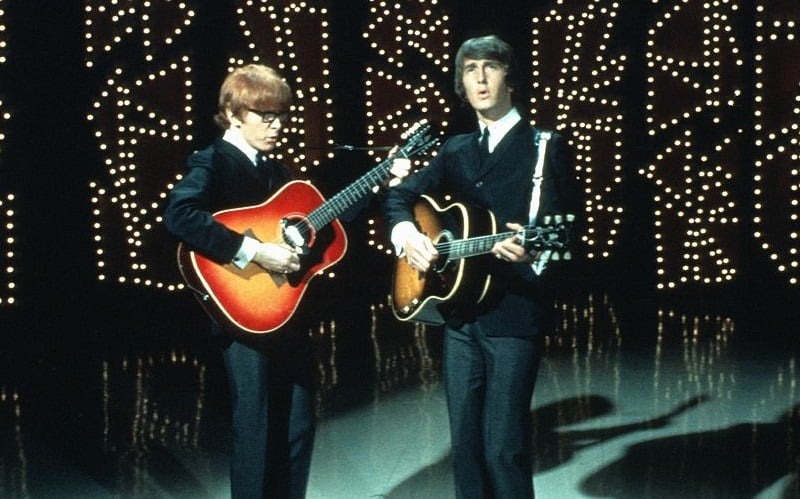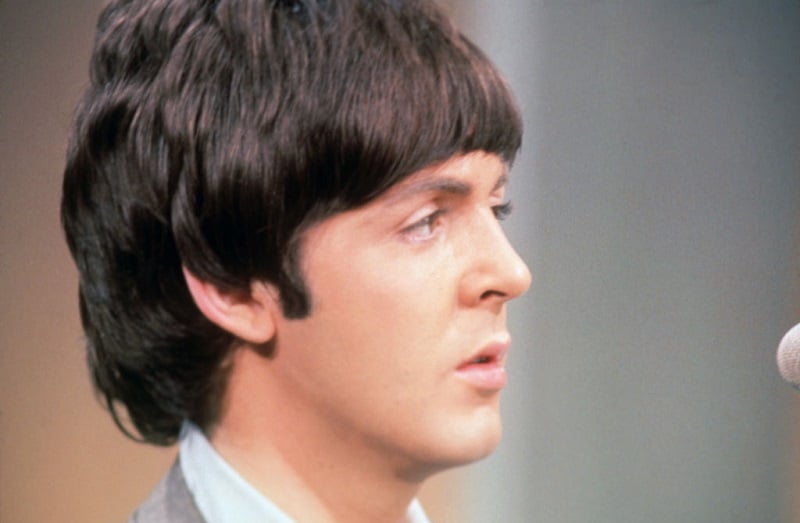Why Paul McCartney Used a Fake Name on the Credits of His 1966 Hit, ‘Woman’
By 1966, you could have called The Beatles unstoppable. Between their arrival in America (February ’64) and the recording of Revolver (spring ’66), they’d already set a pace to notch more Billboard No. 1 hits than Elvis Presley.
Every one of those chart-topping tracks featured the same songwriting team in the credits: John Lennon and Paul McCartney. And you might have argued that the Lennon-McCartney machine could send almost any record to the top of the charts. (After all, “Yellow Submarine” hit No. 2 that year.)
But the idea that anything they wrote would automatically be a hit began to bother Paul. So when folk-rock duo Peter and Gordon went to record the composition “Woman,” Paul asked to put another writer’s name on it. And it became a top-20 hit anyway.
Paul wanted to see if ‘Bernard Webb’ could have the same success

Peter Asher, one half of Peter and Gordon, was no stranger to Paul. Jane Asher, his sister, dated Paul from 1963-68. And during the first half of that relationship, Paul actually lived at the Asher family house in London. So Paul and Peter were basically roommates.
When Asher formed a band with Gordon Waller, he used an early song Paul had written called “World Without Love.” That track, with Lennon-McCartney credited as the songwriters, hit No. 1 on both sides of the Atlantic.
The following year, when Peter and Gordon went to record “Woman,” another track written by Paul (and thus credited as Lennon-McCartney), Paul decided to try something different. So he put the name “Bernard Webb” on the record to see if people weren’t just responding to a brand.
At a press conference during The Beatles’ final tour, Paul explained his thought process. “People say [to Peter and Gordon], ‘Ah, we see your just getting in on the Lennon/McCartney bandwagon.’ That’s why they did that one with our names not on it: because everyone sort of thinks that’s the reason that they get hits. It’s not true, really.”
‘Woman’ became a hit before anyone discovered it was Paul’s

When Peter and Gordon released “Woman” in January ’66, no one seemed to mind that some fellow named Webb had written it. Before long, it cracked the top 20 on the Billboard charts. And it peaked at No. 14 before dropping down. (In England, it made it to a respectable No. 28.)
In his book The Beatles: A to Zed (2019), Peter Asher described how Paul’s secret didn’t take long to get out. “The ‘Bernard Webb’ deception worked for about three or four weeks before somebody found out that it was really Paul,” Asher wrote. “The cat was out of the bag.”
So did that discovery have an impact on the public’s embrace of “Woman”? Asher didn’t think so. “Even those few weeks [before Paul’s authorship was revealed] were enough to prove that the success of the song did not depend upon the record having Paul’s name on it.”
If you notice, Asher is being quite humble here. He left out the other side of the equation: Music fans loved hearing Peter and Gordon perform songs by all sorts of writers. Over the years, the duo had 10 singles crack the top 40 in America.
Also see: The Beatles Record John Lennon Claimed Had ‘the First Feedback Anywhere’


